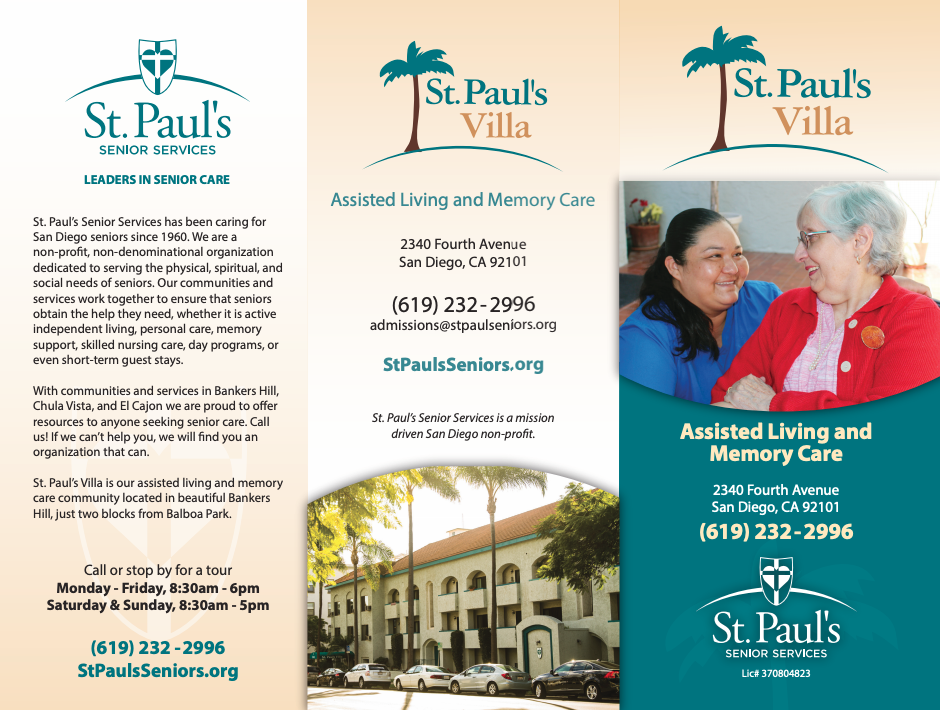As our loved ones age, their needs and requirements evolve, often necessitating a shift in their living arrangements. While some seniors may choose to live independently for as long as possible, others may find that senior assisted living offers a myriad of benefits and enhanced quality of life. In this article, we will delve into the advantages of senior assisted living, providing insights into why it can be a valuable option for your loved ones.
Enhanced Safety and Security:
One of the primary concerns when it comes to aging loved ones is their safety and security. Senior assisted living facilities are designed to provide a safe and secure environment for residents. These communities are equipped with safety features such as handrails, emergency call systems, and 24-hour staff availability to ensure the well-being of residents. This peace of mind allows families to rest assured that their loved ones are in a secure environment.
Social Engagement and Companionship:
Isolation and loneliness can have a significant impact on the mental and emotional well-being of seniors. Senior assisted living communities foster social interaction and companionship through various activities and shared spaces. Residents have the opportunity to connect with peers, participate in group outings and events, and build lasting friendships. The sense of community and belonging that emerges from these interactions can greatly enhance the overall quality of life for seniors.
Personalized Care and Support:
Senior assisted living communities offer personalized care and support tailored to the specific needs of each resident. Trained staff members are available round the clock to assist with activities of daily living, medication management, and other healthcare needs. This level of personalized care ensures that seniors receive the attention and assistance they require while maintaining their independence and dignity.
Maintenance-Free Living:
Another advantage of senior assisted living is the relief from the burdens of homeownership and maintenance. Seniors no longer have to worry about household chores, yard work, or home repairs. This allows them to focus on enjoying their time and pursuing activities they are passionate about, without the stress and physical demands of maintaining a home.
Nutritious Meals and Dining Options:
Proper nutrition is crucial for seniors to maintain their health and well-being. Assisted living communities typically offer well-balanced, chef-prepared meals tailored to meet the dietary needs and preferences of residents. With a variety of dining options available, seniors can enjoy delicious and nutritious meals without the hassle of meal planning and preparation.
Transportation Services:
Getting around can become more challenging for seniors as they age. Senior assisted living communities often provide transportation services, ensuring that residents can attend medical appointments, run errands, and participate in social activities outside the facility. This accessibility promotes independence and enables seniors to remain engaged with the broader community.
Enriching Activities and Amenities:
Senior assisted living communities offer a wide range of activities and amenities designed to enrich the lives of residents. From fitness classes and wellness programs to arts and crafts, educational workshops, and cultural outings, there is something for everyone. These opportunities for engagement and personal growth can help seniors maintain an active and fulfilling lifestyle.
Respite for Family Caregivers:
Caring for an aging loved one can be physically and emotionally demanding for family caregivers. Opting for senior assisted living can provide much-needed respite, allowing caregivers to recharge and take care of their own well-being. Knowing that their loved one is well-cared for and enjoying a vibrant community can alleviate stress and guilt for family members.
Seamless Transitions in Levels of Care:
Many senior assisted living communities offer a continuum of care, including independent living, assisted living, and memory care. This means that as a loved one’s needs change over time, they can seamlessly transition to a higher level of care within the same community. This eliminates the need for a disruptive move or relocation, providing stability and familiarity for the senior.
Access to Healthcare Services:
Senior assisted living communities often have partnerships or arrangements with healthcare providers, making it easier for residents to access medical services. Regular check-ups, medication management, and assistance with healthcare appointments are readily available within the community. This integrated approach to healthcare ensures that seniors receive the necessary support to maintain their well-being.
Peace of Mind for Families:
Choosing senior assisted living for a loved one can bring peace of mind to family members. Knowing that their loved one is in a safe, supportive environment where their needs are met allows families to focus on cherishing their relationship and enjoying quality time together. Regular communication and updates from the staff help families stay connected and involved in their loved one’s life.
Cognitive Stimulation and Memory Care:
For seniors dealing with memory loss or cognitive decline, many assisted living communities offer specialized memory care programs. These programs are designed to provide cognitive stimulation, memory-enhancing activities, and a secure environment tailored to the unique needs of individuals with Alzheimer’s or other forms of dementia. Memory care services can significantly improve the quality of life for seniors and provide them with the specialized care they require.
Freedom to Pursue Hobbies and Interests:
Senior assisted living communities recognize the importance of individuality and personal interests. They offer a range of recreational activities and amenities that allow residents to pursue their hobbies and passions. Whether it’s gardening, arts and crafts, music, or group outings, seniors have the freedom to engage in activities they enjoy, fostering a sense of purpose and fulfillment.
24/7 Assistance in Case of Emergencies:
Emergencies can happen at any time, and senior assisted living communities are equipped to handle them promptly. With staff available 24/7, residents can receive immediate assistance in case of emergencies, ensuring their safety and well-being. This quick response time can make a significant difference in critical situations and provide reassurance to both residents and their families.
A Welcoming and Supportive Environment:
Senior assisted living communities strive to create a warm and inclusive environment that feels like home. The friendly and caring staff, along with the camaraderie among residents, contribute to a sense of belonging and support. Seniors can enjoy the company of like-minded individuals and build meaningful relationships, leading to a higher quality of life and emotional well-being.
Customized Care Plans:
Senior assisted living communities understand that each resident has unique needs and preferences. They work closely with residents and their families to develop customized care plans that address specific requirements. Whether it’s assistance with daily tasks, specialized healthcare needs, or individualized therapies, the care plans are designed to promote the overall well-being and independence of each resident.
Professional Staff and Expertise:
Senior assisted living communities employ trained and compassionate staff members who specialize in senior care. These professionals have the knowledge and experience to provide the necessary support and assistance to residents. From registered nurses and caregivers to activity coordinators and therapists, the expertise of the staff ensures that seniors receive top-quality care in a compassionate manner.
Peaceful and Maintenance-Free Environment:
Senior assisted living communities are often situated in serene and well-maintained locations, away from the hustle and bustle of city life. These peaceful environments offer a tranquil setting for seniors to relax and enjoy their surroundings. With maintenance-free living, residents can appreciate the beauty of landscaped gardens, common areas, and comfortable living spaces without the worry of upkeep.
Opportunities for Lifelong Learning:
It’s never too late to learn and explore new interests. Many senior assisted living communities provide opportunities for lifelong learning through educational programs and classes. Whether it’s attending lectures, participating in book clubs, or engaging in creative workshops, seniors can continue to expand their knowledge and discover new passions, leading to personal growth and a sense of fulfillment.
Supportive Wellness Programs:
Senior assisted living communities prioritize the holistic well-being of residents. They offer a range of wellness programs that focus on physical fitness, mental stimulation, and emotional health. From exercise classes and walking groups to cognitive exercises and mindfulness sessions, these programs promote a healthy lifestyle and overall well-being for seniors.
Easy Transition and Adaptation:
Moving to a new living arrangement can be challenging for seniors. However, senior assisted living communities are designed to ease the transition and support residents in adapting to their new surroundings. The staff is there to provide guidance, support, and assistance throughout the adjustment period, ensuring that seniors feel comfortable and welcome in their new home.
Access to Recreational and Cultural Opportunities:
Senior assisted living communities often organize a variety of recreational and cultural activities to cater to the diverse interests of residents. This includes outings to museums, theaters, concerts, and local attractions. These opportunities allow seniors to remain connected to their community, explore new experiences, and maintain a vibrant and active lifestyle.
Increased Independence and Autonomy:
Contrary to common misconceptions, senior assisted living communities prioritize independence and autonomy for their residents. While there is assistance and support available when needed, seniors are encouraged to maintain their independence and make choices that align with their preferences. This balance of support and independence empowers seniors to live life on their terms.
Family Involvement and Visitation:
Senior assisted living communities recognize the importance of family connections and encourage regular visitation. They provide comfortable and welcoming spaces where families can spend quality time with their loved ones. Whether it’s sharing meals together, participating in activities, or simply enjoying conversation, these moments of togetherness contribute to the overall happiness and well-being of seniors.
Continuity of Care:
If a resident’s health needs change or require a higher level of care, senior assisted living communities often have options for seamless transitions within their continuum of care. This ensures that residents can receive the appropriate level of support and healthcare services without the need for disruptive moves or transitions to unfamiliar environments. This continuity of care promotes stability and peace of mind for both residents and their families.
In conclusion, senior assisted living offers a multitude of benefits that can significantly enhance the quality of life for aging loved ones. From personalized care and a supportive environment to access to healthcare services





 To get a CNA job, initially you will need a CNA degree. CNA courses are short and not too expensive, and also they are available everywhere. Regarding the duration of the course, the federal government has a criterion of 75 hours while California state government has a criterion of 150 hours. You can enroll in any of these, but make sure it is state approved. The plus point with these courses is that a majority of them are usually free, but that is only if you agree to work for them as soon as your course is completed. The course will train you with the theoretical as well as practical skills to prepare you for a CNA job. Once you complete your course, you will have to take the certification exams. Only after you pass this exam, you will able to work as a CNA. You will also have to go through a background check. Then, starts you job search.
To get a CNA job, initially you will need a CNA degree. CNA courses are short and not too expensive, and also they are available everywhere. Regarding the duration of the course, the federal government has a criterion of 75 hours while California state government has a criterion of 150 hours. You can enroll in any of these, but make sure it is state approved. The plus point with these courses is that a majority of them are usually free, but that is only if you agree to work for them as soon as your course is completed. The course will train you with the theoretical as well as practical skills to prepare you for a CNA job. Once you complete your course, you will have to take the certification exams. Only after you pass this exam, you will able to work as a CNA. You will also have to go through a background check. Then, starts you job search. Thence, you can choose your work-time according to your comfort. The job opportunities are expected to increase about 21% by the next decade. Hence, scarcity of CNA jobs is very unlikely. In fact, every year the number of nurses are reported to be lesser than the amount needed.
Thence, you can choose your work-time according to your comfort. The job opportunities are expected to increase about 21% by the next decade. Hence, scarcity of CNA jobs is very unlikely. In fact, every year the number of nurses are reported to be lesser than the amount needed.

 Who Resides In Assisted Living Residences?
Who Resides In Assisted Living Residences?

